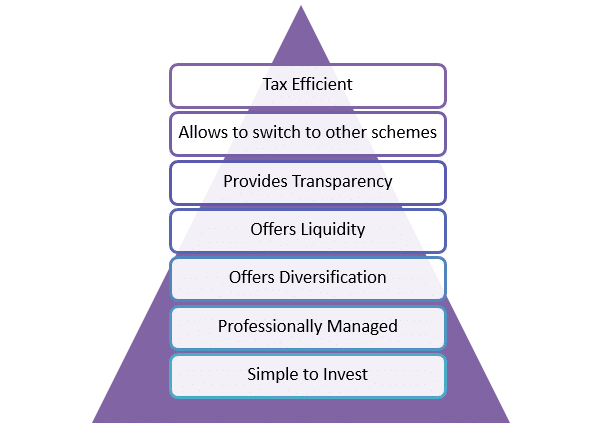Who doesn’t want an extra income stream? The pandemic has taught us the importance of multiple income sources more than ever. The pandemic has hit us all unexpectedly, many lost their jobs and lively hood; only those with sufficient savings and passive income sources were able to survive through these unprecedented times of crisis.
With the vaccine trials initiated in many parts of the world we can hope for a gradual end to the pandemic but are we really prepared for something like this in the future? If not then now is the time to think.
What Exactly Is Passive Income?
In simple words, Passive income is income that requires little to no effort to earn and maintain. It is called progressive passive income when the earner expends little effort to grow the income. Examples of passive income include investments in business activities in which the earner does not materially participate. The beauty of passive income is that you can have money coming in even as you pursue your primary job.
Sources of Passive Income
Some of the most common sources in Pakistan for generating extra income are Rental, Bank Savings Accounts, and Investments in Stock Market Bonds & Securities. Another very lucrative yet one of the most under-utilized avenue in Pakistan are Mutual Funds.
Let’s look at each avenue separately. The most common income source for many is Rental income however owning a property in these times is not easy especially if you are in the early years of your career or business.
The property prices in major cities of Pakistan are sky-high, owning your own residential property is a daunting task under the current economic conditions let alone having an additional property on hand to rent out. Just to bring things in perspective, here’s a recent Pakistan House Price Index Graph:

The second source of generating extra income is stocks. While it is a reliable way to generate an income passively, it does require in-depth market research and active monitoring & management of stocks to counter the risk of market downswings. Not many have the time or understanding to actively manage their portfolios.
On the other hand, though relatively safe, direct investments in bonds & securities are not feasible for individual investors due to the sheer volumes involved.
This brings us to Mutual Funds: Mutual Funds offer investors an affordable way to diversify their investment portfolios. It allows investors the opportunity to have a financial stake in many different types of investments which include stocks, bonds, money market, commodities, etc. from one window.
But unlike stocks where the investor is required to manage their funds, mutual funds are managed by a team of experts called Fund Managers who buy and sell on behalf of the investor against a nominal fee.
How Mutual Funds Work
As mutual funds are invested in multiple avenues the investors can invest their money in any avenue that best suits their risk profile. Some of the types of mutual funds are explained below:
Equity Funds
A Mutual Fund that invests in equity securities. They have a higher potential for growth but more potential volatility in value.
Income Funds
A fund that provides the investors with regular income with long-term preservation of capital and also provides an opportunity to realize capital appreciation.
Money Market Funds
A fund that invests in short-term securities including banks, DFIs placements, commercial papers, and cash. As the safest of all funds, these portfolios have a stable NAV.
Balanced Funds
A mutual fund which is composed usually of a balanced mix of both stocks and fixed income securities.
Funds of Funds
These are funds that invest in other mutual funds.
Asset Allocation
A systematic approach for apportioning the portfolio into stocks, bonds and cash, and/ or other asset classes or categories. Factors such as age, investment horizon, risk tolerance, and portfolio size play an important role in determining an individual’s asset allocation.
Exchange-Traded Fund
Aims to provide investors an opportunity to track the performance of the underlying Index that has been constituted and is maintained by the Management Company, and can comprise equity or income securities.
Benefits of Investing in Mutual Funds
Mutual Funds & Tax Benefits
Besides being a lucrative, diverse, and highly regulated income source option, a very important benefit of investing in mutual funds is the tax rebate you can claim on your income tax. This is a special provision by the Government of Pakistan to encourage individuals to invest in mutual funds.
In simple words, if you are invested in mutual funds and pension funds your employer will deduct less tax from your salary and if you are a businessman, you can also claim a tax rebate on your income.
The maximum tax benefit that an individual can get is up to 40% of his or her annual taxable income times his or her tax rate. The amount of tax credit that you can get on an investment in mutual funds and pension schemes is dependent on: a) The amount of investment you make. b) Your annual taxable income/Taxable Salary.
Tax Rebate Illustration
| Annual Income | Effective Tax Rate | Tax Liability |
| 5,000,000 | 13.40% | 670,000 |
| Investment | Tax Credit Benefit | Total Tax Benefit | Net Tax Liability | |
| Mutual Fund1 | 1,000,000 | 134,000 | 268,000 | 402,000 |
| Pension Fund2 | 1,000,000 | 134,000 |
| 1Maximum Tax credit available on investment of 20% of Annual Taxable Income or actual investment amount or Rs. 2,000,000/- whichever is lower. As per current tax laws persons availing tax credit on investment in mutual funds must hold their investment for twenty four months from investment date. Otherwise the tax assesse has to pay back the tax credit earlier availed in the Tax Year in which he / she withdraws the funds, if two years since date of investment have not concluded.
2Investment amount eligible for tax credit is up to 20% of taxable income. As per current tax laws persons availing tax credit on investment in Voluntary Pension Schemes should hold their investment until the Retirement Age (Age 60-70 or 25 years from date of investment, whichever is opted). Otherwise with-holding tax at the average rate of last three years is applicable. *Tax rates are for Tax Year 2020 – 2021 |
|
So if you are looking for a reliable source to generate extra income but lack the time, expertise, or even a very deep pocket, then mutual fund investments are an avenue to consider. They are professionally managed by seasoned fund managers, you can start your investment with as low as PKR 5,000 and choose from a range of funds based on your risk appetite and investment objectives.
However, when you choose your Asset Management Company to start your investment journey do run a background check in terms of their performance history and rating.
Al Meezan Investment’s for example is Pakistan’s largest Shariah Compliant Asset Management with assets under management of over 182.031 billion*, largest industry customer base of over 140,000* investors, and an impressive track record of over 26 years. It is also the only asset management company in Pakistan to be awarded the highest management quality rating of AM1 by both VIS & PACRA (rating agencies).
With such a rich portfolio you can be sure that your investment is in good hands however each investor must do their own due diligence and be aware of the risks associated with any investment avenue. For more information you may visit the links below:
Website: www.almeezangroup.com
Tax Calculator: https://www.almeezangroup.com/investor-education/financial-calculators/tax-savings/
As per Section 62 of Income Tax Ordinance, 2001, an individual investor of open end mutual fund (unit trust schemes) can claim tax credit on investment up to Rs. 2,000,000/- or 20% of individual’s taxable income or actual cost of acquisition of units (whichever is less) on an investment made in Mutual Funds between July 1st and June 30th. As per section 63 of the income tax ordinance 2001, an eligible person joining Meezan Tahaffuz Pension Fund can avail tax credit up to 20% of the (eligible) person’s taxable income for the relevant tax year. In view of individual nature of tax consequences, each investor is advised to consult with his/her tax advisor with respect to specific tax consequences of investing in the Fund. To avail tax rebate on mutual funds, minimum investment holding period of two years from the date of investment is required, failing which taxes shall be applicable as per the tax laws. Tax credit can only be once during these two years and not every year.
Risk Disclaimer: All investments in mutual funds and pension funds are subject to market risks. Past performance is not necessarily indicative of the future results. Please read the Offering Document to understand the investment policies and risks involved. This is for general information purposes only. AMC Rating: AM1 by VIS & PACRA. *AUMs as of 30th April 2021 excluding FoF but including SMA.

























